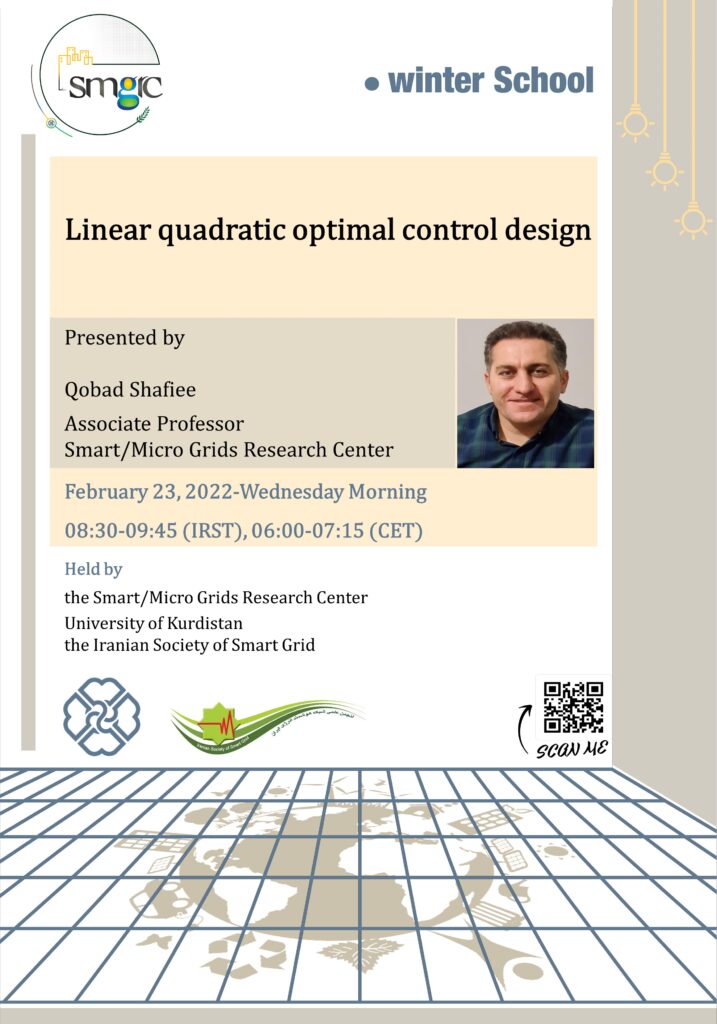
About the Presenter
Qobad Shafiee (S’13–M’15–SM’17) received a Ph.D. degree in Electrical Engineering from the Department of Energy Technology, Aalborg University (Denmark) in 2014. He is currently an Associate Professor, Director of International Affairs, and Co-Leader of the Smart/Micro Grids Research Center at the University of Kurdistan (Sanandaj, Iran), where he was a lecturer from 2007 to 2011. In 2014, he was a Visiting Scholar with the Electrical Engineering Department, the University of Texas at Arlington, Arlington, TX, USA. He was a Post-Doctoral Fellow with the Department of Energy Technology, Aalborg University in 2015. He is a Senior Member of IEEE, Associate Editor of IEEE Transactions on Power Electronics, and Guest Associate Editor of IEEE Transactions on Energy Conversion. His current research interests include dynamic modeling, design, control of power electronics-based systems and microgrids, and model predictive and optimal control of modern power systems.
General Information:
This course will be useful for …
The aims of this course are …
Where and how you can use this knowledge?
In many practical control problems, it is desired to optimize a given cost function while satisfying constraints involving dynamical systems. These kinds of systems typically fall into the area of optimal control, a centerpiece of modern control theory. Optimal control theory is a branch of mathematical optimization that deals with finding a control for a dynamical system over a period such that an objective function is optimized. This method is largely due to the work of some scientists in the 1950s, after contributions to the calculus of variations. The optimal control can be derived using Pontryagin’s maximum principle (a necessary condition) or by solving the Hamilton–Jacobi–Bellman equation (a sufficient condition). Optimal control methods comprise fundamental tools used in many engineering systems such as economics and logistics, aerospace systems, automotive industry, autonomous systems and robotics, bio-engineering, process control, and power systems.
The objective of this lecture is to familiarize the students with the theory and application of optimal control for linear and nonlinear systems. The focus of this lecture will be on linear-quadratic optimal control, a special case of the general nonlinear optimal control problem. For the sake of better understanding, some simple examples and numerical simulations will support the provided concept and theory. The lecture will be useful for undergraduate and postgraduate students with a background and basic understanding of control systems.